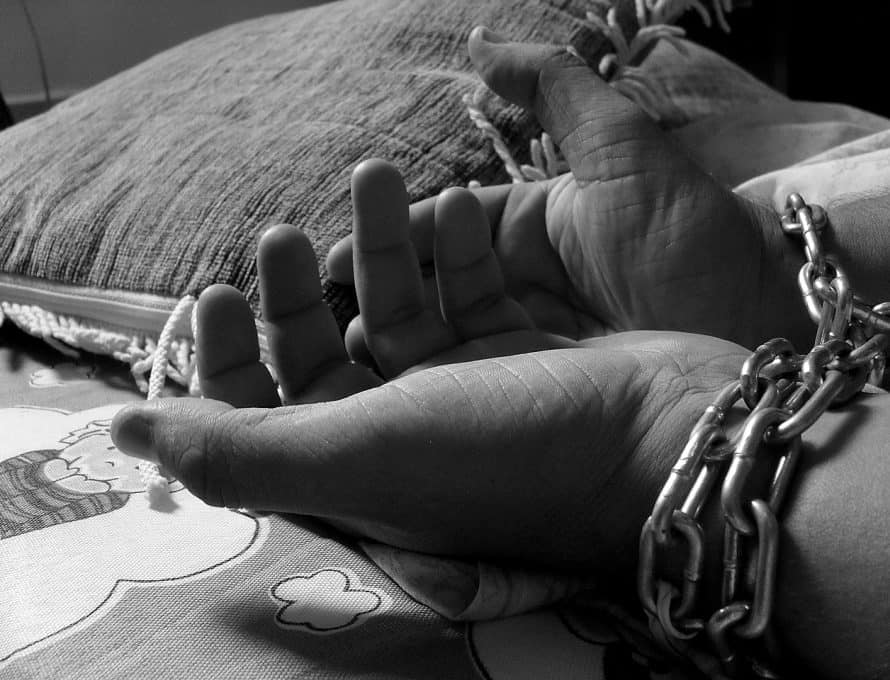EDITOR’S NOTE: This is article includes reporting from Diana Chandler of Baptist Press and from Pathway associate editor Benjamin Hawkins.
WASHINGTON (BP) – The U.S. is among 33 top countries fighting human trafficking but falls short in prosecuting traffickers, aiding victims and tackling forced labor in particular, the U.S. State Department said in its latest “Trafficking in Persons Report” (TIP).
Additionally, according to Fox News, the report ranked the U.S. among the top three nations of origin for victims of human trafficking in 2018. Alongside the U.S. in this ranking were Mexico and the Philippines.
These findings didn’t surprise Pete Livingston, a former executive pastor at Concord Baptist Church, Jefferson City, who moved in 2014 to southeast Asia with his wife, Debbie, to help bring freedom and healing to trafficking victims.
“For the last three years, we have said at every human trafficking event that we do, ‘The fastest growing market in the world for human trafficking is the United States of America,’” Livingston told The Pathway.
But trafficking is a global problem that crosses national boundaries, he added. Currently, an estimated 25 million adults and children worldwide are victims of sex trafficking and forced labor.
These realities, Livingston said, oblige Christians around the nation and across the globe to do all they can to prevent and respond to trafficking with the love of Christ.
For several years, Missouri Baptists have been active in responding to needs caused by trafficking. The Missouri Baptist Children’s Home (MBCH) has a ministry for trafficking victims, and the Restoration House – a ministry of Blue River-Kansas City Baptist Association – does the same work.
Last October, the Baptist Student Union at Truman State University in Kirksville partnered with the MBCH and five local churches to sponsor their first annual Freedom Walk – an event intended to raise awareness of the need to end human trafficking.
Also, in 2014, messengers to the MBC annual meeting passed a resolution condemning human trafficking, calling Baptists to pray for victims and urging the state’s attorney general to aggressively enforce laws that prohibit such trafficking.
U.S Ambassador-at-Large John Cotton Richmond, who released the 2019 TIP report last month, agreed that faith communities can help countries address human trafficking.
“Traffickers continue to operate with impunity and only a small fraction of victims receive trauma-informed, victim-centered support services,” said Richmond, ambassador-at-large to monitor and combat trafficking in persons. “Yet, by working together, governments, civil society organizations, survivor advocates, and faith communities can reverse this troubling pattern.”
The TIP report annually measures nearly 200 nations on their success in fighting human trafficking within their own borders, based on practices established in the latest versions of the U.S. Trafficking Victims Protection Act of 2000 (TVPA), and the international 2000 Protocol to Prevent, Suppress and Punish Trafficking in Persons, Especially Women and Children (Palermo Protocol). Most victims of human trafficking are victimized within their country of residence, the report said, although sex trafficking victims are transported internationally more often than labor victims.
The U.S. “fully meets the minimum standards for the elimination of trafficking,” the report found. “These efforts included increasing the number of convictions, increasing the amount of funding for victim services and number of victims served, continuing to seek and incorporate survivor input on human trafficking programs and policies, and launching new public outreach measures to more sectors.
“Although the government meets the minimum standards,” the State Department reported, “it opened, charged, and prosecuted fewer cases; issued fewer victims trafficking-specific immigration options, and granted fewer foreign national victims of trafficking eligibility to access benefits and services.”
TIP divides countries into three tiers, with Tier 1 countries meeting minimum TVPA standards to eliminate trafficking, Tier 2 nations making significant efforts to comply with TVPA, and Tier 3 countries not making significant efforts to comply, according to the report. A Tier 2 Watch List earmarks nations that have committed to meet minimum standards, but have a significant number of people severely victimized by human trafficking and the nations are unable to provide evidence of improvements.
Sharing Tier 1 with the U.S. are Argentina, Australia, Austria, The Bahamas, Bahrain, Belgium, Canada, Chile, Colombia, Cyprus, the Czech Republic, Estonia, Finland, France, Georgia, Guyana, Israel, Japan, South Korea, Lithuania, Luxembourg, the Netherlands, New Zealand, Norway, the Philippines, Portugal, Slovenia, Spain, Sweden, Switzerland, Taiwan and the United Kingdom.
Countries with the most severe problems, those in Tier 3, not only overlook human trafficking, the report said, but some systematically perpetrate the crime.
“Some of these governments allow human traffickers to run rampant, and other governments are human traffickers themselves,” Pompeo said. “In North Korea, the government subjects its own citizens to forced labor both at home and abroad and then uses proceeds to fund nefarious activities.
The study defines human trafficking as “sex trafficking in which a commercial sex act is induced by force, fraud or coercion, or in which the person induced to perform such an act” is under age 18; or “the recruitment, harboring, transportation, provision, or obtaining of a person for labor or services, through the use of force, fraud or coercion for the purpose of subjection to involuntary servitude, peonage, debt bondage, or slavery.”
The full report is available at www.state.gov/reports/2019-trafficking-in-persons-report/.

